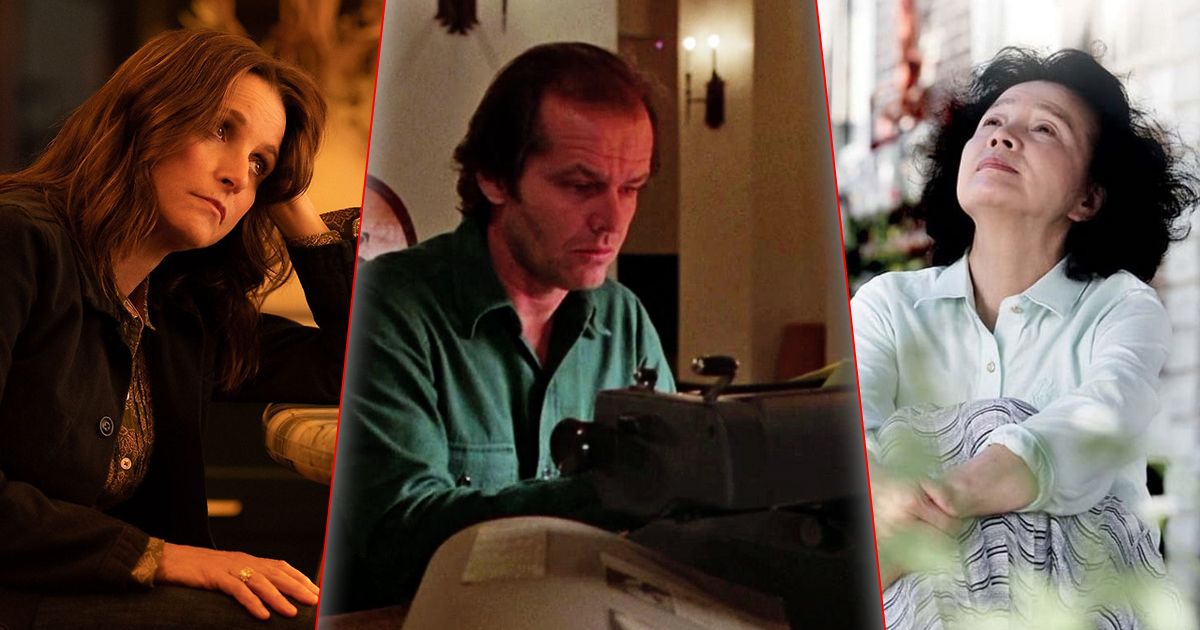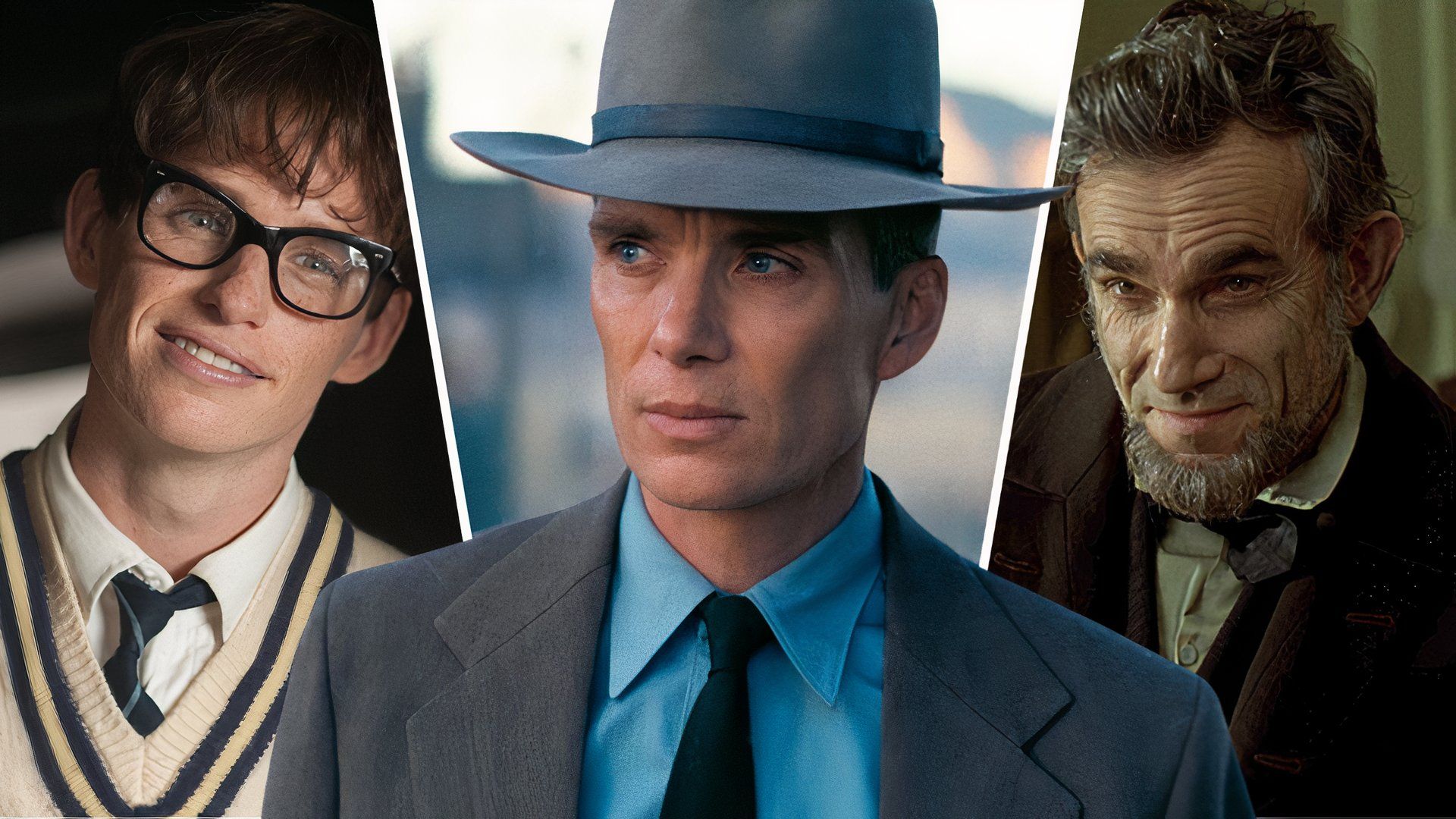Audiences who love historical dramas, brilliant literature, or resilient actors like the great Gabriel Byrne (The Usual Suspects, In Treatment, The Man in the Iron Mask) will appreciate Dance First, a somewhat illuminating biopic on literary genius Samuel Beckett. The Irish novelist/dramatist brought to the stage classic works such as Endgame, Happy Days, and Waiting for Godot, which is generating buzz again with the upcoming Broadway production starring Keanu Reeves and Alex Winter. The duo famously starred in the Bill & Ted films, and their unique pairing in Waiting for Godot will surely provoke thought at the least.
That’s the goal of Dance First as well. It’s a curiously unusual work in that it reviews Beckett’s life through the lens of his more eye-opening mistakes. Rather than focus on the awards-bait power of his myriad achievements, director James Marsh (The Theory of Everything) and writer Neil Forsyth (The Gold, Guilt) construct a film out of Beckett’s more treasured relationships — and those he wronged, including himself. It’s an unconventional approach, perhaps fittingly so for an artist whose works range from alienating and rather bleak to darkly comedic and even beautiful. There’s a twist here that keeps the drama moving.
Dance First Gets Told in Samuel Beckett’s Style (For Better or Worse)
The film begins with Beckett winning the 1969 Nobel Prize, which the author himself isn’t overly thrilled about. Upon hearing his name called out to a packed audience, he mumbles the word “catastrophe” to his wife, Suzanne (Sandrine Bonnaire). A more conventional aesthetic approach would have found the film leaping back to how Beckett emerged as a genius literary force. Instead, it takes creative detours early on.
We’re taken into an offbeat story told the way Beckett may have shared it. Soon, we find him discussing his life with himself, targeting his bigger regrets in his relationships. One by one, these slightly surreal flashbacks take us back into the past, each sojourn beginning with a black-and-white title card identifying the person — lover, friend, colleague — that the man felt he wronged. To that end, this kind of navel-gazing works to a degree, but ultimately doesn’t offer either a historical or literary look at the complete creative titan.

Related
13 Best Movies With Characters Who Are Writers
Some of the greatest movies feature characters who are writers. Here’s a list of the best.
A Commanding Performance by Gabriel Byrne
Gabriel Byrne does, however, master the role he’s been given to play — basically, two Becketts. Byrne himself is an introspective actor. His work as brooding psychologist Paul Weston in HBO’s In Treatment garnered two Emmy nominations for Outstanding Lead Actor. Other actors fair well here, including Fionn O’Shea (Master of Air) as the young Beckett who leaves Ireland for Paris in the hopes of being mentored by the one and only James Joyce, played winningly by Aidan Gillen (Game of Thrones). A potential romance with Lucia (Gráinne Good), Joyce’s daughter, prompts contemplation. Later, we find Beckett as an intelligence officer for the French Resistance in WWII.
Through it all, O’Shea delivers a believable performance, but where the film falters is how intent it is to simply focus on Beckett’s personal life. By the time Byrne has emerged in the flashback narrative, we find the character unsure where to place his devotions — on Suzanne or Barbara Bray, a literary critic (Maxine Peak). These actors deliver exceptional performances, but the script doesn’t allow for a deeper investigation into how Beckett became such a mastermind. Had the film offered several more scenes with that in mind, it may have lifted this experience.
biopics

Related
Best Biopics Ever Made, Ranked
The silver screen is a faithful servant to good biographical films, as the genre is undisputedly the darling of both the Academy Awards and Hollywood.
Creating Samuel Beckett’s Otherworld
Throughout the film, Beckett “escapes” into his cerebral world, where he can dialogue with an alter ego — “The Other Beckett.” Director James Marsh and the film’s location manager found an abandoned quarry in Budapest that fit their needs. It evoked a moody sense of being somewhere and nowhere at the same time. It’s one of several elements that make up the film’s stellar production value.
As for the film’s title, it’s taken from Beckett’s famous ethos, “dance first, think later,” which has been analyzed throughout the decades. Surely it’s more than just a “carpe diem” kind of bumper sticker slogan. Was the phrase merely reflecting Beckett’s possible fear of paralysis or inaction? Perhaps he felt that overthinking can thwart action and livelihood. Did he prefer taking immediate action over contemplation? Dance First relishes contemplation, but only in the latter part of the artist’s life, where the two Becketts — and two Byrnes for that matter — go at it.
It’s worth the time to experience James Marsh and Neil Forsyth’s unique take on Beckett. But if you’re looking to understand how the man evolved as an artist and what made him tick creatively, it’s not present here. The New Look, the Apple TV+ series about fashion icon Christian Dior, suffered similarly, but that outing benefitted from multiple episodes in which to tell its story. Beckett’s life and work were rich enough for a limited series. Still, with Gabriel Byrne at the helm under Marsh’s keen guidance, there’s still enough to savor here. Dance First opens in theaters Aug. 9 and will be available on digital platforms beginning Aug. 16.




